Prof. Dr. Susanne Hensel-Börner
Professor of Business Administration with a focus on Marketing
Please note: This degree programme is currently not open for enrolment. Are you interested in a part-time study programme with a focus on digitalisation and AI? Then we recommend our Master's degree programme in Innovation Management – AI Transformation (MSc), which allows you to specialise in digital transformation from the second semester onwards.



The innovative Master of Science Digital Transformation & Sustainability combines, for the first time, two major topics of the future in one business study course: digitalisation and sustainability. Rethink teaching, learning and researching! With a maximum of 18 students the study group is small. Project-based learning is used throughout the degree programme. The group is accompanied by two professors and project consultants. Are you interested in making your own contribution; do you want to develop your own projects and ideas? This programme is ideal for you! Aligning with the UN's Global Goals, the graduates of the programme master the challenges of a rapidly changing digital world sustainably – perfect for a career as Change Manager, Project Leader, and future Executive.
Innovative combination of the topics Digitalisation & Sustainability – breaking the boundaries between disciplines
Projects – from practice & research, which can also include your own ideas – instead of exams and tradition
Small groups and individual support
International excursion (into the digital world)
4 Competencies of the Global World: Critical Thinking, Creativity, Communication and Collaboration
Innovative topics: networking of people, organisations and the world, influence of digital media, growing importance of data and machines
Continuous reference to the 17 Global Goals of the United Nations (SDGs)
JOB & MASTER Service: JOB & MASTER is a free-of-charge placement service for applicants who wish to combine a challenging academic education at HSBA with valuable professional experience.
Mentoring Programme: Students are matched with experienced HSBA Alumni from the Hamburg business community, offering to be ideal sparring partners / role models.
Campus in the heart of Hamburg
To successfully complete the programme and be awarded the Master of Science degree, 120 ECTS must be collected. The credits are spread over core modules as well as five semester projects and one mandatory elective module. The programme concludes with the thesis.
Reflecting on your own learning process and developing personally and as a whole learning group - throughout your entire degree programme
One week excursion with company visits as a learning experience in different dynamic economic regions, prepared and organised by the students together with the lecturers
Reflecting on your own learning process and developing personally and as a whole learning group - throughout your entire degree programme
The focus here is on generating impact yourself - current topics in digitalisation and sustainability are worked on in small groups and in some cases implemented with external partners
The diverse spectrum of sustainability from biology to law is covered here in a kind of lecture series with different lecturers
Learn and apply an individual new subject area - this is possible with one of the Intrapreneur, Programming or Data Business profiles in an intensive and collaborative full-time week
Reflecting on your own learning process and developing personally and as a whole learning group - throughout your entire degree programme
The focus here is on generating impact yourself - current topics in digitalisation and sustainability are worked on in small groups and in some cases implemented with external partners
Human values and social behaviour in a digitalised world - what is there to consider and how does this fit in? Intensive discussions are held here under the guidance of a philosopher
Reflecting on your own learning process and developing personally and as a whole learning group - throughout your entire degree programme
Gemeinsam mit ihrem Betreuer wählen Studierende ein Thema für eine abschließende wissenschaftliche Arbeit aus (in Deutsch und Englisch möglich).
Professor of Business Administration with a focus on Marketing
Professor of Logistics Management/ Airbus Endowed Chair of Logistics Management

Lecturer

Lehrbeauftragter

Lehrbeauftragte
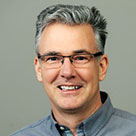
Lecturer
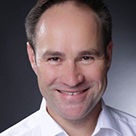
Lecturer
Professor of Business Administration with a focus on Marketing
Professor of Economics
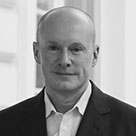
Lecturer

Lecturer

Lecturer
A Master's degree in Digital Transformation & Sustainability opens up a wide range of career prospects for graduates in a wide variety of industries such as retail, construction and real estate, energy and utilities, consumer goods or consulting. As sustainability or project managers, they are responsible for developing and implementing (digital) strategies to reduce a company's ecological footprint or plan and coordinate projects aimed at achieving sustainability goals. As sustainability development consultants, they advise and accompany companies on their way to a digital, sustainable future.

Nils Mönkeberg has been working as an IT consultant at the Hamburg-based consultancy PHAT Consulting and advises organisations on digitalisation and sustainability issues. With his part-time Master's degree in Digital Transformation and Sustainability (MSc) at the HSBA, he was able to further qualify himself for the challenges of a digital, sustainable future. We talked to him about what drives him, how well study and work complement each other and where he sees his future.
Just two years ago you first started a new job and then also a new course of study. How did that come about?
During my application process at PHAT, our People Lead, Lutz Gärtner, gave me the tip to take a look at the degree programme because it could be a good fit for both me and my position at PHAT. And as it turned out: yes, it fits and I like it very much. I am incredibly grateful to Lutz for that.
In your degree programme, you learn to link digitalisation and sustainability and to see them as two sides of the same coin. The degree programme is particularly project-oriented and focuses on project learning in the sense of John Dewey (learning by doing), for example in the research project or the practical project. (How) can you use the knowledge generated at the university meaningfully in practice? Are there any examples to illustrate this point?
That's an exciting question, and it's also the question that guides the entire degree programme. First of all, the degree programme is a win-win-win situation. The university, the company and I as a student and consultant all benefit from each other in terms of knowledge exchange and networking. I have often taken content from work into my studies, especially to do justice to the exchange among us students during project learning. Even more exciting, however, is the content of my studies that I can transfer into practice. Basics and general education in the context of DT & S speak for themselves, I think, but it went far beyond that. For example, in the second semester we developed an analysis of existing measurement concepts for sustainability in the research project. I have already used this model several times with our clients!
A good two years ago, the topic of sustainability really took off at PHAT with the implementation of its own sustainability unit, among other things. PHAT accompanies companies on their way to a digital, sustainable future - with the help of digital technologies. At PHAT, you put it this way: "Digitalisation enables sustainability". That fits perfectly with your degree programme. Can you perhaps briefly introduce us to one or two projects you have worked on and explain how exactly digitalisation can lead to more sustainability?
Exactly like that! You could also put it his way: sustainability is the WHY and digitalisation is the HOW. First of all, digital tools enable easier communication and increased collaboration in organisations. In addition, today's digital possibilities have helped us to accompany organisations during the pandemic and keep the work going. Ten years ago this would have been simply unthinkable. To be more specific: Dashboarding, i.e. measurability, is a major issue, for example. The most successful sustainability strategy with the best vision, the clearest mission and the most tangible goals is of no use if actual and target cannot be tracked and compared.
What particularly motivates you at work and in your studies?
What motivates me at work is the high degree of personal responsibility, the appreciation that PHAT shows me as a person (not a number or an employee) and the professionalism of digital transformation and sustainability. Our office in the middle of the Reeperbahn and the many spontaneous team evenings are just the icing on the cake. In my studies, my course group has been inspiring me for two years now, and always anew. We are a heterogeneous group that has grown incredibly close together and encourages and challenges each other. The course content, the lecturers and our course directors, Susanne Hensel-Börner and Michael Höbig, make the package complete. I am really grateful that I get to work with so many great people at PHAT and HSBA!
In your opinion, what are the most important overarching competencies taught during the degree programme?
The list could get very long, so I would focus on these:
Do you already have an idea of the (task) area in which you would like to work after graduation?
I assume that my area of responsibility will be similar to my current work in counselling, but with a significantly higher level of expertise and requirements. I hope for concrete projects in which we will think holistically about sustainability and digital transformation for and with our clients!
Read the full article: PHAT Success Story: Sustainability is WHY and Digitalisation is HOW (hsba.de)

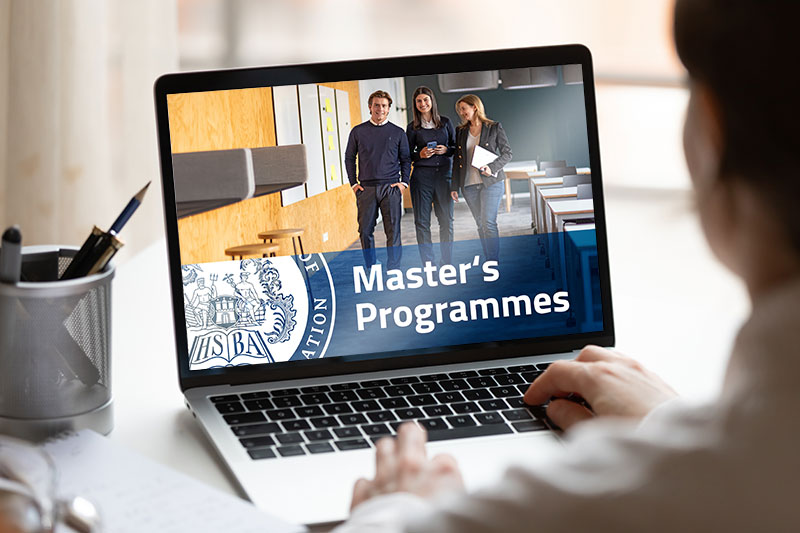

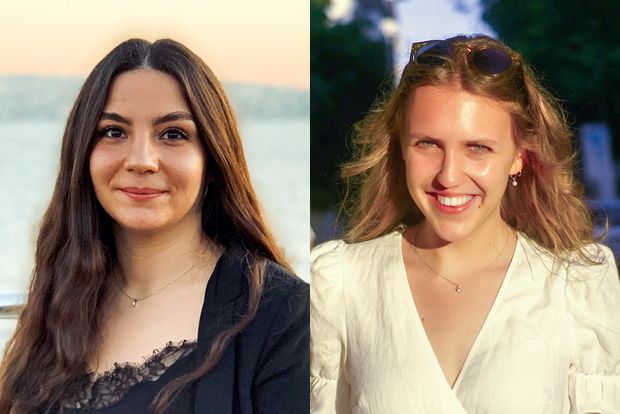
Would you like to address your questions directly to our students? Please contact Lucie Karpinski (MSc Innovation Management) by e-mail. Students from abroad are welcome to contact Kumru Özkan (MSc Business Development programme)! The Master's students will be happy to answer your questions!
Scientists present their research on economic sustainability and resilience in times of geopolitical crises
Formal farewell ceremony for all graduates in the trading hall of the Hamburg Chamber of Commerce
Every year, our Master's students set off on a week-long trip to visit companies in different economic regions; the study trip is organised by the students themselves in collaboration with the teaching staff. This year, three groups of students from the MSc Innovation Management and MSc Digital Transformation and Digitalisation programmes travelled to Silicon Valley, Turin and Hamburg. They gained in-depth insights into regional economic issues, got to know the country and its people together, and created an unforgettable experience.
Here are some highlights, lessons learned and impressions from their trips – many thanks to all participants, especially Patrycja Kubicz & Evgeny Azarov (Turin), Rike Braker (Silicon Valley) and Lamees Al Maaite & Jiranan Panlanatiyarak (Hamburg) for their input and the great photos!
A big thank you goes to all the companies that gave our students such a warm welcome. The study trip is supported by the Association of Friends and Sponsors of HSBA (VFF).
At HSBA you can study two Master's programmes: The Master of Science (Msc) Innovation Management as part-time programme with a business management focus, and the Master of Business Administration (MBA), which you can study part-time or full-time.
Applications are possible at any time. However, since HSBA only has limited study places and funding programmes are sometimes awarded after receipt of the application, and visa processes can take a long time, we recommend an early application for your Master's programme. If you want to apply for the JOB & MASTER offer at the same time, we recommend an early application to our university due to the longer procedure.
In the Master's programme Innovation Management (MSc), the courses take place on extended weekends and in individual full-time weeks at the HSBA in Hamburg. On the Master of Business Administration (MBA) programme, courses take place on two attendance days and in two full-time weeks. The other days are reserved for company visits, language courses and an accompanying cultural programme (Hamburg and the surrounding area).